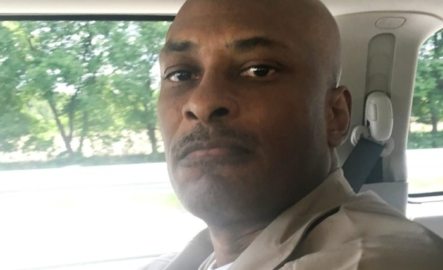A historic moment is unfolding in the U.S. Senate as two Black women are set to make history in this year’s election. If elected, it will mark the first time that two Black women have served in the chamber, a milestone in the more than 200-year history of Congress.
While many await this possibility, Delaware’s Lisa Blunt Rochester reflected on the significance of her candidacy, saying, “I’m not doing this to make history, but to make a difference in people’s lives.” Maryland’s Angela Alsobrooks added, “People like me, and stories like mine, don’t usually make it to the Senate—but they should.”
If both Democratic candidates win in November, the number of Black women ever elected to the Senate will rise from two to four. Historically, the Senate has been dominated by white men among its 100 members. Despite this, no two Black women have ever served together.
Debbie Walsh, director of the Center for American Women and Politics at Rutgers University, remarked, “I have to pause and think, how is that possible? It’s not that white male attorneys shouldn’t have a seat at the table, but they shouldn’t be the only ones at the table.”
This year’s election is full of potential history-making moments. While the presidential race is drawing significant attention, the congressional elections are also fiercely contested. Blunt Rochester, running unopposed in her primary for the seat vacated by retiring Sen. Tom Carper, is confident she can defeat her Republican opponent. Meanwhile, Alsobrooks faces a tougher challenge against Republican Larry Hogan, the popular former governor of Maryland, in a race that could decide Senate control.
Alsobrooks, who defeated David Trone in her primary, has strong grassroots and party backing. She serves as County Executive of Prince George’s County and previously held the position of State’s Attorney. Blunt Rochester revealed that she and Alsobrooks refer to each other as “sister senators to be” in their private conversations.
Their friend and colleague, Vice President Kamala Harris, was the second Black woman ever elected to the Senate in 2016. The first, Carol Moseley Braun, won in 1992 but served only one term. In 2023, Laphonza Butler became the third, appointed to fill out the term of the late Sen. Dianne Feinstein.
As the campaigns heat up, Glynda C. Carr, president of Higher Heights for America, said there is a sense of excitement and anticipation. Both women have embraced their backgrounds without focusing solely on their historic firsts, leaving it to voters to recognize their Blackness and their voices as women.
Blunt Rochester often shares the story of her great-great-great-grandfather, once enslaved in Georgia, who gained the right to vote during Reconstruction. She reflects on this history as she looks ahead to what she will pass on to her baby granddaughter. Alsobrooks launched her campaign by sharing her family’s story of leaving South Carolina after her great-grandfather was shot by a sheriff’s deputy.
Both women have longstanding ties to Harris, with Blunt Rochester and Harris entering Congress the same year and often sitting together at Congressional Black Caucus events. Alsobrooks first met Harris over a decade ago when Harris was California’s Attorney General.
In 2024, these candidates are aiming for broad appeal in an increasingly diverse country, signaling a cultural shift as Congress becomes more reflective of the electorate. Aimee Allison, founder of She the People, emphasized that this new generation of candidates shows you can hold multiple identities while serving diverse constituencies.
Despite the challenges Black women have faced in politics, from a lack of party resources to skepticism about their electability, Blunt Rochester and Alsobrooks are forging ahead. Their successes could inspire future candidates and help reshape the Senate.
READ ALSO: Top 10 African countries becoming popular for citizenship among the wealthy










